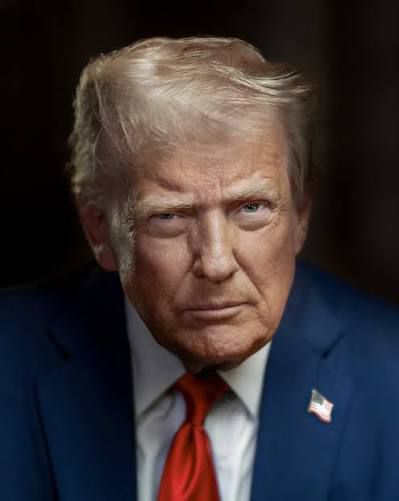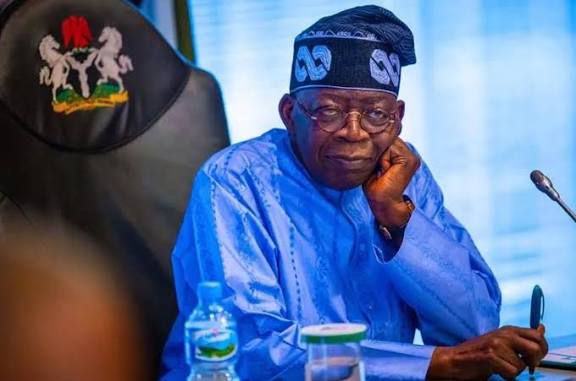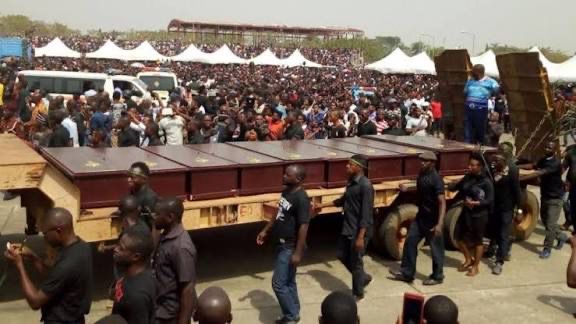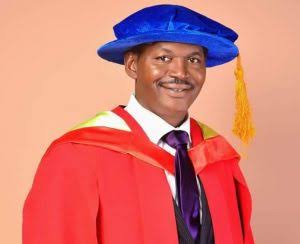Remi Aiyede, professor of political institutions, governance, and public policy in the Department of Political Science at the University of Ibadan possesses strong analytical competence on issues of politics home and abroad. A seasoned insightful speaker, he came through for the NPO Reports’ efforts to dissect the US President, Mr. Donald Trump’s designation of Nigeria as a “Country of Particular Concern” amidst growing fears of a possible incursion into the Nigerian affairs by the Trump administration. He spoke with SAFIU KEHINDE.
What is your take on US President, Mr. Donald Trump’s designation of Nigeria as Country of Particular Concern?
There are international standards in terms of fundamental human rights, especially drawing on the Universal Declaration of Human Rights of 1948. It’s a very fundamental aspect of democratic governments.
Normally, every democratic constitution includes what they call the Bill of Rights and it is usually based on the Universal Declaration of Human Rights. And there are certain countries who present themselves as not just democratic countries but also promoting democratic values across the world. They control a number of democracy promoting institutions across the world both in terms of spelling the values and practices across countries.

Of course, you know the United States is one of those countries. A very fundamental aspect of the Bill of Rights is what we call respect for diversity, protecting the rights of minorities, even when in part, where majority rules, minority rights must be protected.
And one of those fundamental rights is the right to religion, the right to your personal beliefs, the freedom of association, and so on and so forth.
So, within the international system, we also know that it is not just about rights. Elections are often considered in line with what they call best practices, international standards. That’s why you have election observers all over the world.
So, very important is the assurance that there is no persecution of anyone, either because of his belief, his religion, or his commitment to one political ideology or the other.
But we also know that after the Universal Declaration of Human Rights, we did not stop the abuse of human rights that led to the extension of the Universal Declaration of 1948.
That’s why with the genocide, the crisis, the genocide in Rwanda, and so on and so forth, there was a commission that revisited the issue and then they developed a new principle which we call the Responsibility to Protect. This Responsibility to Protect redefines sovereignty in terms of the responsibility of states to protect their citizens. And in the event that they are unable to do so, they can call the international community to help them and protect the rights of citizens. And where the state themselves become oppressive and prove to be a danger to their citizens, in terms of these three concerns; war crimes, crimes against humanity, and genocide, the international community can intervene to ensure that citizens are protected.

If states sit by and allow genocide to be inflicted on their citizens and they do not take protective steps, and they are unable to do so, but also fail to call on the international community to help them address that problem, then the international community can take it as a responsibility to intervene.
So, the whole idea is really that if it is established that there is genocide, then of course, a big country like the United States, a member of the Security Council, can invoke the process of investigating the allegations of violations through the International Criminal Court of Justice.
It’s not something that happens within a short space of time. Investigation, the process of declaration, all of these things take a number of time, and they are usually very controversial.
But, in essence, that’s actually the long-term implication of this declaration of concern about the danger of genocide against citizens that the United States president is talking about.
Does that mean that Trump’s declaration is justifiable as far as Nigeria’s case is concerned?
Well, I don’t think so. The first question that needs to be addressed is whether the occurrence of genocide in Nigeria can be established. There are differing perspectives on this issue, with some affirming its occurrence, others denying it, and some holding a more nuanced view.
Some said there has been a systematic killing of Christians, especially in the Middle Belt (area of Nigeria). There are those who think that the government has been very permissive and indulgent to those carrying out those attacks and that they could do better, especially since the time of the kidnapping of over 100 girls in Chibok. That’s one dimension of it.
There are those who say “Yes, Christians are killed but not only Christians as even Muslims are also attacked by these organisations. And there are those who then said yes, the government has not done enough and there are those who say the government is trying.
And of course, you should also see the release of the President. He said Nigeria is intolerant of discrimination against people on the premise of their tribe or a religion, and that Nigeria is a society of religious diversity.
So, there is evidence that killings have occurred. There is also evidence that it is not only Christianity. But there is a deep concern because if you go to the Middle Belt, the activities are very different from other parts of the country.
I believe that it is easy to establish that there have been systematic killings in the Middle Belt targeting the Christians. But what is yet to be established is whether we can say what has happened is genocide because even the definition of genocide has not been established by the court of law, particularly the International Criminal Court of Justice.
The idea of genocide itself is controversial. And it is not for us as individuals to establish whether it has happened in the Middle Belt (or not.) It is actually established through investigation by the International Criminal Court of Justice.
But what we know now is that there is a major controversy that has occurred even preceding the announcement of Trump. There are many religious leaders, including Hassan Kukah, who have cried out about the killings of Christians in the Middle Belt.
In fact, the current debate is that he is now being criticised for not going outside the country to portray the point of genocide. Rather, he has made what some people described as a U-turn, saying that the situation is not as bad as to declare Nigeria as a Country of Special Concern in terms of the degeneration. People have criticized him for making U-turn and some of them have insisted that what has happened is actually sufficient for that kind of declaration.
They still have to carry out the investigation. What the United States has done is to constitute itself as a promoter of democracy and fundamental human rights across the world, which is drawing attention to what is happening in Nigeria.

What do you think are the implications of these declarations on Nigeria and what options do we as Nigerians have regarding the declarations?
Well, for me, the most important thing for us as Nigerians is to turn the tide of this killings, to see if government can strengthen its capacity to address those challenges and ensure that they don’t faill again, or they are systematically reduced up to the point that any investigation that would happen in there will not find the situation that can be described as genocide against Christians.
But I think that our real concern is to address the security situation.
What do you think about diplomatic strains between the US and Nigeria?
It has already created it because there was a time when the US wanted to bring all the Africans that had been deported to Nigeria. People have already started pointing to that as the basis of which Trump is trying to castigate Nigeria.
So naturally, there will be some kind of strains in our relationship. In any case, the President has responded in a diplomatic manner. But you also know that we have had issues since that time with the Trump administration, especially on the issue of visas, and you see what has happened to Professor Wole Soyinka and other Nigerians who are holding American visas.
And they have also downgraded it from two years that they used to give to just 90 days.
So we do have that strain in our diplomatic relations.
With the way we’ve been seeing Trump, particularly when it comes to his relationships with countries that are not really in support of him, what do you make of the US President?
Yes, there have been demonstrations consistently in the United States about the onslaught of authoritarianism in the U.S. Look at the way they closed the USAID. Look at the way they sacked a lot of people in a bid to cut down the bureaucracy. And then, look at the way they are using ICE to harass immigrants, deport them. And there are many cases in the court concerning his attempt to redefine citizenship in the United States as far as it relates to immigrants.
So, there are those who claim that Trump, with his MAGA supporters, cannot lay any claim of being democratic.
In fact, in the United States, there are serious worries about the retreats and his kind of democracy, his imposition of a fascist and authoritarian kind of rule in the United States.
And so, when you now put this together, you’ll know that of course, Trump is not the right candidate to lay claim to protecting human life and to advancing democracy not to talk of trying to police religious tolerance or genocide across the world.
That’s the contradiction that I think surrounds the declaration that he has just made about Nigeria.


